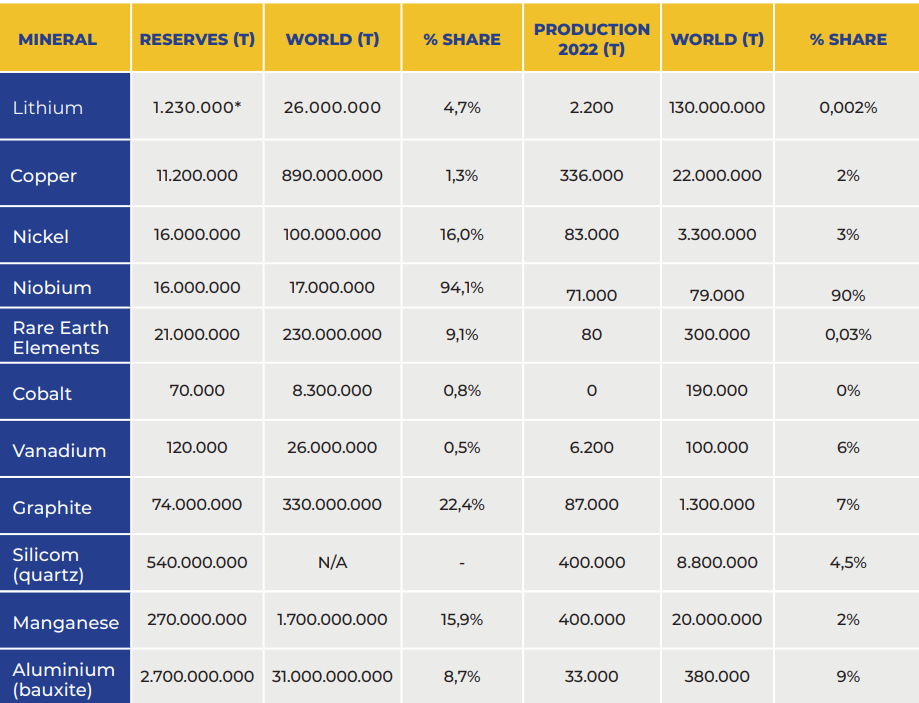A statement from Brazil’s Ministry of Energy and Mines, released by the country’s mining association (Ibram), said that “the global transition to a low-carbon economy is driving the consumption of key minerals needed for the electrification of transport and the development of renewable energy. Brazil’s abundant key mineral resources are attractive to foreign investors.”
The guide also describes Brazil’s infrastructure, such as motorways, railways, ports, airports, internet and energy, as well as exploration and development needs and regulatory requirements.
The guide can be downloaded at:
https://ibram.org.br/wp-content/uploads/2024/03/EN-PT-Guia-para-o-Investidor-Estrangeiro-em-Minerais-Criticos-para-a-Transicao- Energetica-no-Brasil-11032024.pdf
Despite its huge mineral potential, there is still a need to produce high-quality inputs to meet battery demand
The Brazilian market’s demand for strategic minerals is still in its early stages. Currently there are only one company produces battery-grade lithium carbonate on a small scale, and only one company transform niobium. Given that Brazil has significant potential for important mineral reserves, it aims to produces a variety of products based on lithium, niobium, graphite, copper, nickel and aluminum.
Brazil has abundant mineral resources and a competitive supply of clean energy. it seeks provide these inputs to battery manufacturers regardless of where they are located. In addition, Brazil interested in establishing integrated value chains with partners in South America. and, Brazil aims to manufacture components and even the batteries themselves. also In minerals and energy, Brazil has a skilled workforce that can be trained and mobilized, and Countries have the ability to develop their own technology.
The percentage of fossil fuels in Brazil’s electric matrix in 2022 was 10%. Globally, this percentage was 72%, and for OECD countries, it was 70%, for the year 2021 (IEA).As for the overall energy matrix, the percentage of fossil fuels in 2022 was 51.4% in Brazil.
Globally and for OECD countries, this percentage was 85.6% and 88%, respectively, in 2021 (IEA).According to the Ten-Year Energy Expansion Plan (PDE 2031), electricity consumption and supply in Brazil are expected to grow by about 40% over the next ten years. The increase in domestic energy supply was estimated at 30%, and final consumption is projected to grow by 27% between 2021 and 2031.
Post time: Apr-01-2024

